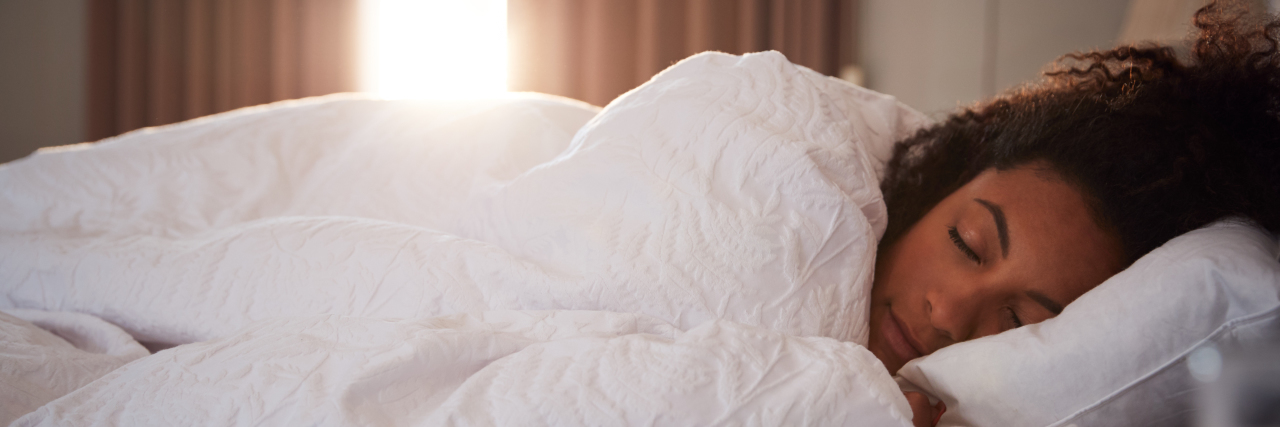What I've Learned About Sleep Hygiene as Someone With Hypersomnia
Editor's Note
Need to take your mind off what you’re going through? Join the Distract Me group on The Mighty.
It’s not easy being sleepy, but it is easier to go to sleep on time.
From day one we as humans have needed sleep to function. As a child we relied heavily on our parents to get us to sleep through the night, to tell us when to go to bed and to put us to bed. We needed them to put us down for a nap so we could enjoy the rest of the day, be in a good mood and not be that irritable child at family gatherings. How many times did your parents say to you “but first you have to have a nap” before doing something exciting?
As we grow up and as we become more responsible for ourselves, many of us seem to detach ourselves from this consistent healthy routine of sleep. We start to neglect our sleep as FOMO gets the better of us. We overindulge in nights out and on Netflix shows ’till the early hours of the morning. You name it. We all do it.
But no one actually enjoys only getting four hours of sleep. Even when we treat ourselves to staying up late, we still complain about the lack of sleep the following day. Let’s face it, it’s not fun being exhausted or deprived of sleep. It makes the day feel endless, you become unproductive, you become triggered and angered by things that have never bothered you before. Argumentative, and an itchy-b to put it politely. It really isn’t easy being sleepy.
Not many people seem to know how important good sleep hygiene is for us. As a person living with hypersomnia, I am forced to practice good sleep hygiene so I can have a life outside of my sleepiness. I do my best to stick to a strict bedtime routine, and I still take afternoon naps, so I can do the fun things in life. I have to say to myself “but first let me take a nap” before I can go on my night out, or before I can call my significant other. But first, let me take a nap so I can enjoy myself and for others to enjoy my company. But first, let me take a nap so I don’t further damage my health.
Failure to do so has huge consequences and not only hurts me but hurts those around me. I become that terrible child who screams for chocolate or throws a hissy fit for no reason, and more often than not relies on someone to tell me when it’s bedtime. It’s not a good look.
My motive behind achieving good sleep hygiene is to improve my quality of life, something I can control with or without the help of medication. My sleep is non-restorative; my condition does not allow me to ever feel awake or refreshed after long or short periods of sleep. So by sticking to a strict routine, I can learn my aches and pains in a way that allows me to wake up in a “healthier” mindset, even though physically I am not. It is still a work in progress, but I can already feel the benefits.
I can’t even begin to imagine how beneficial good sleep hygiene is for the everyday person.
If you are having a bad day, ask yourself, “What time did you go to bed?” More often than not, bad sleep hygiene is the reason you aren’t being your best.
I’d also like to point out that good sleep hygiene doesn’t just mean going to bed at a reasonable time. You’ve gotta love your bed and love your bedroom. It needs to be a happy place that promotes sleepiness, a place you enjoy. You will not feel good if you sleep in a room you hate. Paint the walls, get rid of whatever is annoying you etc. Not only does this improve your sleep, but it can have such great effects on your mental well-being.
This story originally appeared on But First, Let Me Take a Nap.

